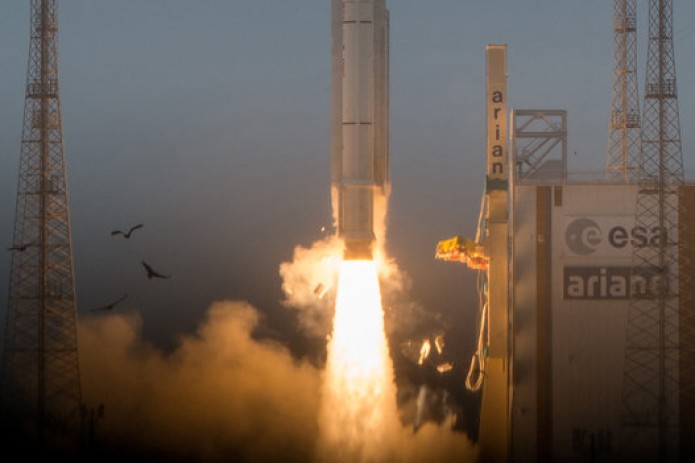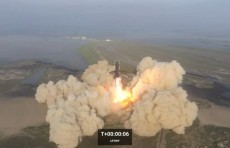Europe moves closer to own satnav system with latest Galileo launch
Europe launched four more Galileo satellites on Tuesday (December 12), taking the number in orbit to 22 and moving a step closer to having its own navigation system, lessening its dependence on the U.S. Global Positioning System, or GPS.

Europe launched four more Galileo satellites on Tuesday (December 12), taking the number in orbit to 22 and moving a step closer to having its own navigation system, lessening its dependence on the U.S. Global Positioning System, or GPS.
The satellites blasted off from Europe's spaceport in French Guiana aboard an Ariane 5 rocket at 3.36 PM local time (1836 GMT) and headed for an orbit of around 24,000 kms (14,900 miles) above Earth, according to the European Space Agency (ESA).
The Galileo system is eventually to have a total of 30 satellites, weighing about 700 kgs (1,543 pounds) each, which are equipped with antennae and sensors and powered by two 5-square-metre (53.8 square foot) solar wings.
The EU aims to use Galileo to tap into the global market for satellite navigation services, which it estimates will be worth 250 billion euros ($296 billion) by 2022. Also, it says that around 6 to 7 percent of the $16 trillion EU economy depends on the availability of global navigation satellite signals.
The EU has an agreement with the United States that allows the combined use of GPS and Galileo, which will allow for more accurate positioning than with only one system.
Russia and China have also launched their own global positioning systems, Glonass and Beidou, to underpin their defence industries and civilian commerce.





.png)



















